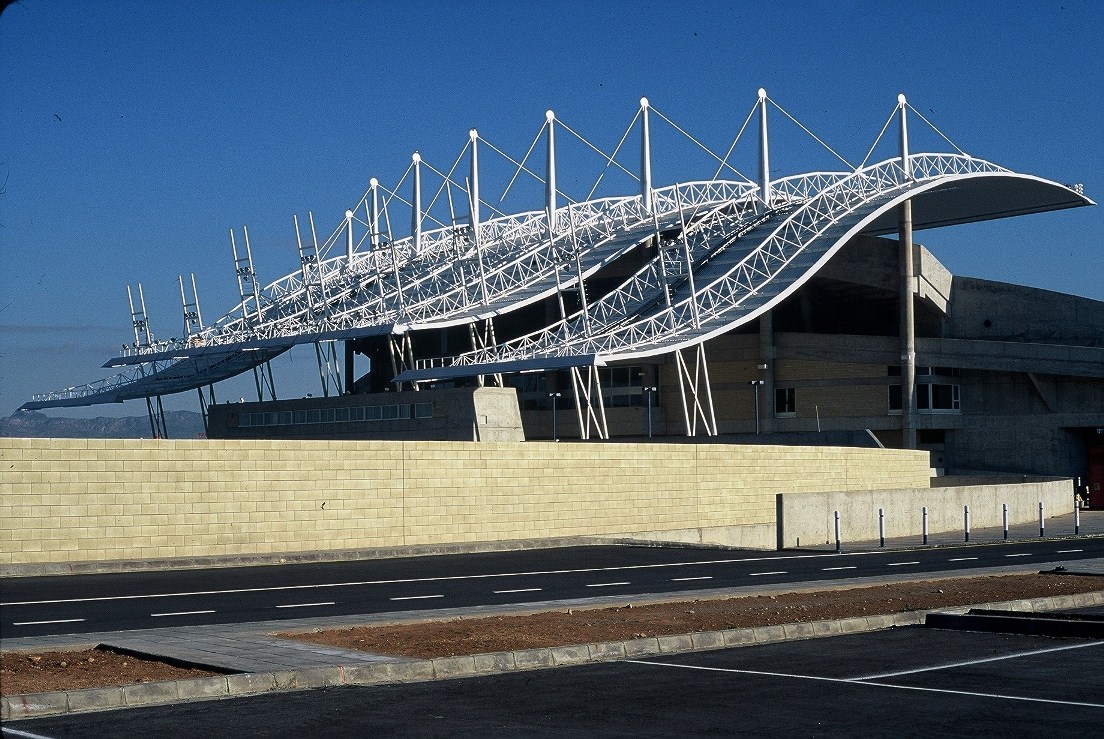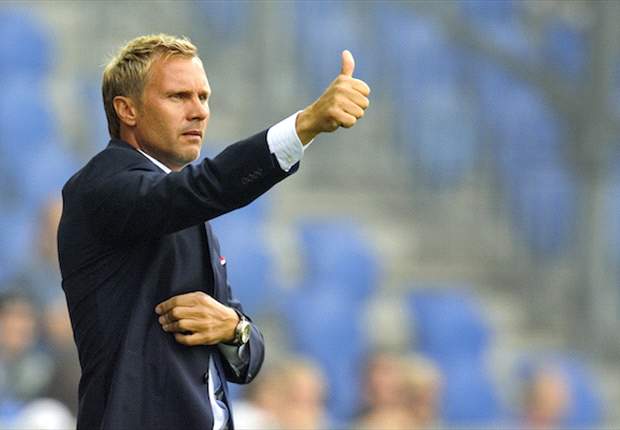Salamina are on a tight budget and it shows. They have players who can run, but can’t consistently find a teammate with their passes. They have players who can pass well but are slight and easily checked. They have players who are strong and imposing, but are slow and cumbersome. Granted, no team in Cyprus can afford players without any weaknesses whatsoever, but some have managed to obtain players whose limitations are not excessively notable.
Ram Strauss, for example, saved some decent shorts, including a penalty by Djebbour, but scuffed clearances, sliced passes and punched in situations where he should have caught, or at least tried to catch, the ball. Even when in his 6-yard box he chose to fist the ball away, rather than attempt to make it his own, despite the fact that any challenge by a rival would be deemed a foul. His performance and general eccentricity will have done nothing to alleviate some of the stress from the four defenders in front of him.
Speaking of which, Solomon Grimes must be a source of frustration for the Salamina fans. Not because he is the worst player in the squad, but because they must beat themselves over what could have been had Grimes’ decision making and passing were even of an acceptable level.
The general lack of these two attributes from certain Salamina players might have afforded Apoel a less stressful encounter and, ultimately, have denied Salamina from at least the point of a draw. Grimes was not alone in his poor in-game choices. The worst offender, considering he was brought on from the bench and should theoretically have exploited the openness of the game and the tired legs of his opponents, was none other than Pedrito.
It all started promisingly enough, but quickly deteriorated into a farce. Panayiotou initially placed him in a wide position, but he roamed around the pitch as needed the more he grew into the game. His introduction injected some much needed spirit into Salamina’s game, his directness and eagerness to run through congested parts of the pitch a sharp contrast to the stodginess of the first half, but there was no end product. The epitome of this came on the 86th minute where, whilst on a counter attack, Pedrito found himself flanked by two teammates and opposed by only two Apoel players. Outnumbering the opponent players, Pedrito could have quickly passed to Aurelio, who was nearer the goal, unmarked and more likely to latch onto a forward pass, but he passed to his right, towards Henrique. Not only was Henrique further away from goal, but he’s also one of Salamina’s slowest players. Pedrito’s overhit pass only added insult to injury.
On the other side of the token, Apoel had no such problems. Whilst they’re underperforming and aren’t generally very inspiring to watch at the moment, Apoel can rely on a few players for consistency. For example, Nuno Morais, though not playing to his usual high standards, is a model of quiet dependability. He cooly chested the ball to teammates, tackled and marked adequately and generally found a player in a yellow jersey with the vast majority of his passes. In tandem with Lanig, Apoel seem to have stumbled onto a very solid base for the front four to launch attacks from. That being said, Morais should have seen a yellow card during the first half. Salamina were in the middle of a counter (notice a theme here?) when the ball hit his arm. The touch did not stop the ball from reaching a Salamina player so the referee correctly let the attack unfold. However, after the ball went out of play, he should have cautioned the Portuguese midfielder.

























